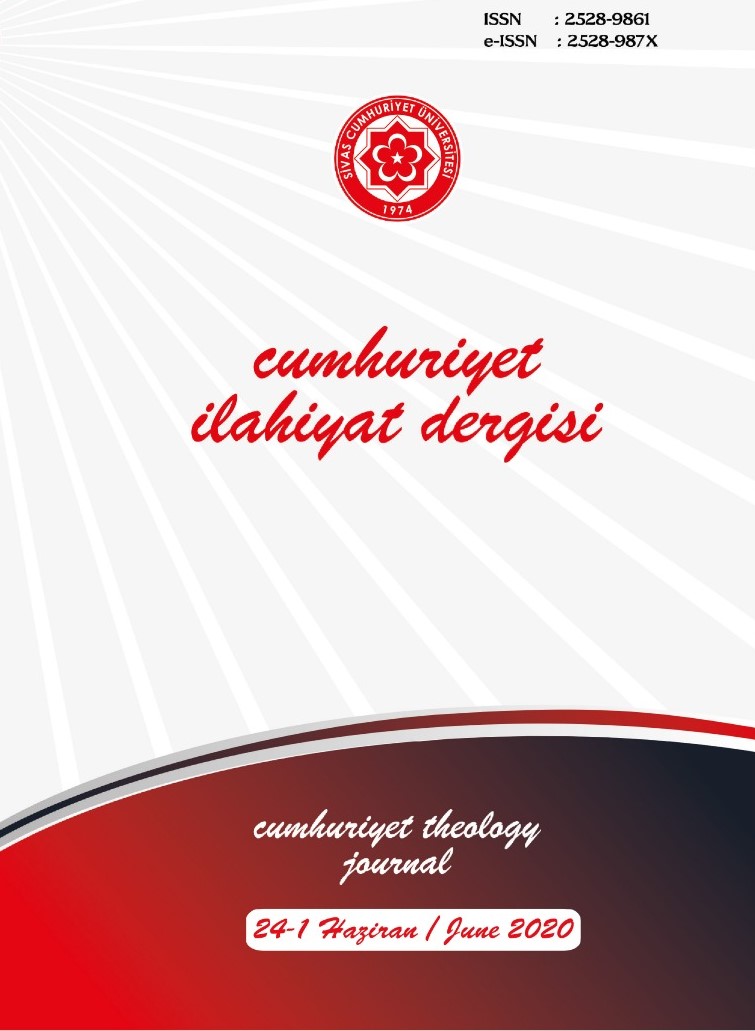Hanefî ve Zâhirî Usûlcülerin Kur’ân’ın Âmm Lafızlarının Delâleti ve Haber-i Vâhidle Tahsîsine İlişkin Görüşlerinin Fıkhî Düzenlemelere Etkisi
The Effects of Ḥanafī and Ẓāhirī Methodists’ Opinions About the Indication of General Utterances in Qur’ān and the Subject of Their Specification by al-Khabar al-Wāhid on Islamic Law Regulations
Author(s): Mustafa TÜRKANSubject(s): Islam studies, Sharia Law
Published by: Cumhuriyet Üniversitesi İlahyat Fakültesi
Keywords: Islamic Law; School of Ḥanafiyya; School of Ẓāhiriyya; General Utterance (al-Lafdh al-Āmm); Specification (Takhsīs); al-Khabar al-Wāhid (Single Prophetic Narration); al-Khabar al-Wāhid (Single Prophet
Summary/Abstract: The subject of general utterances (al-lafdh al-āmm) being certain or presumptive in their usage as an indication to all their members is controversial amongst the methodists. Ḥanafī methodists suggest that the indication of general utterances to all of their members as certain and unless they are specified with a certain evidence, they can’t be specified with a presumptive evidence. Like the ḥanafī methodists, the ẓāhirī methodists also suggest that the general utterance is certain indicant for all of its members and can be specified only with an-other evidence in the same rank. The main difference between the two groups focuses on whether al-khabar al-wāhid (single prophetic narration) is a certain or a presumptive evi-dence in terms of certitude. According to ḥanafīs, al-khabar al-wāhid is a presumptive evi-dence and unless the general utterances in Qur’ān are specified initially with another certain evidence, they can’t be specified with al-khabar al-wāhid. However, al-khabar al-wāhid is a certain evidence according to ẓāhirīs and it can specify general utterances in Qur’ān. In this study, the comparison of the views of the methodists of two schools regarding the indication of general utterances in Quran and their specification (takhsīs) with al-akhbar al-wāhid is made and their influence on Islamic Law regulations is studied afterwards. In this study, the two sect’s approaches are compared over the provision of reading al-Fatehah during prayer, the number of milk sucking to establish the kinship, the rights of women divorced with bain talaq and the execution of the death penalty in the Harem region.
Journal: Cumhuriyet İlahiyat Dergisi
- Issue Year: 24/2020
- Issue No: 1
- Page Range: 5-25
- Page Count: 21
- Language: Turkish

